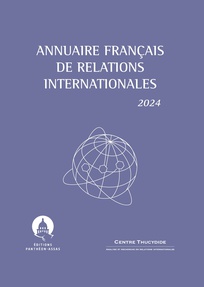Africa’s rising commodity export dependency on China
Carlos Casanova & Alicia García-Herrero
BBVA Research, 10 mai 2016
Lire à https://www.bbvaresearch.com/en/... ![]()
China has played a decisive role in facilitating South-South cooperation, marking a clear departure from traditional North-South dominance. Nothing reflects this shift more clearly than bilateral trade flows. Trade has grown exponentially between Africa and China but, notwithstanding the continent’s commodity abundance, the region may have already accrued a trade deficit with China. Moreover, exports to China are remarkably concentrated around a limited number of products, all of which are classified as commodities. The nature of bilateral trade flows raises some alarms. China’s growth momentum has begun to dwindle and, more importantly, the growth model is being geared from investment towards consumption. For this reason, it is unlikely that the pace of growth in bilateral trade can continue, at least as concerns Chinese commodity imports from Africa. The extent to which a slowdown in bilateral trade will impact African exports depends on how vulnerable these commodities are to shifts in Chinese demand. To measure this, we have deployed an export dependency index for the major countries in Africa. Our index reveals that commodity dependence has increased overboard in Africa between 2005 and 2015. Looking at commodity dependence on China in absolute terms, it is apparent that the story in Africa is really about Angola, and Zambia, while on a commodity basis, dependence is largest in the case of mineral fuels. This increase in dependency has three major implications for Africa: 1) Trade dependency on China may have played a role in reducing the potential for interregional trade; 2) African countries need to develop policies that boost manufacturing and downstream processing capacity, and 3) Value retention also lies ahead as a big challenge for trade relations between Africa and China unless good policies are put in place.












